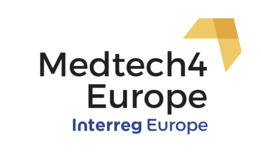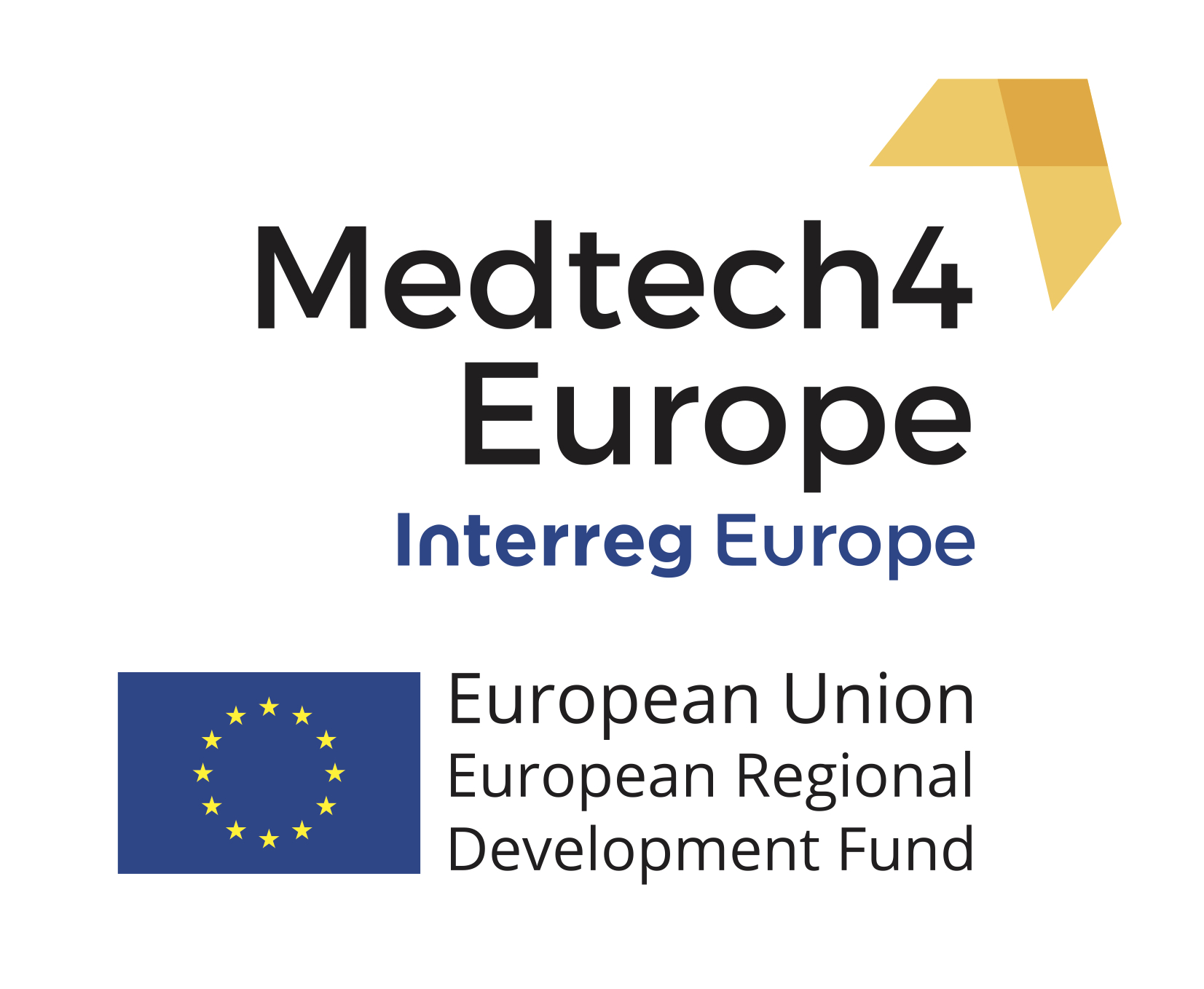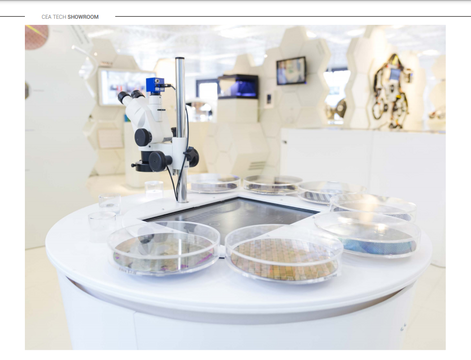The South Transdanubian Regional Innovation Agency Nonprofit Ltd. (STRIA) organized its second Medtech4 Europe stakeholder meeting on 30th May 2019. The meeting was held at the Medical School of the University of Pécs (MSUP). In the Medtech4 Europe Interreg Europe project lead by Auvergne-Rhone-Alpes Region, STRIA participates as Hungarian partner from 1st June of 2018.
In the preparation of four-and-a-half years of cooperation the dean of MSUP, professor Dr. Miklós Nyitrai, Dr. András Lukács, deputy director of institute and Dr. Péter Maróti, associate professor, professional coordinator took part on the stakeholder meeting. They are supporting the international exchange of experience.
The Medtech4 Europe project deals with medical technology devices and products that are used for human medical diagnosis or therapeutic treatment. The project classifies these products into 16 categories, ranging from active implantable technologies (such as pacemakers) to laboratory equipment (e.g. in vitro devices), in line with the classification used by the Global Medical Technology Nomenclature Agency. The aim of the project is to exchange experiences in this area between Denmark, Finland, France, the Netherlands, Poland, Hungary, Germany and Italy and their regions, with the help of which a more efficient medical technology research and product development market will be introduced. more effective and targeted.
At the end of May the representatives of the university (PTE Medical School), the companies (Hystopatology Ltd.) and the organizations providing the bridge between them (STRIA, MediKlaszter) took part on the meeting. At first, Zsolt Pálmai, deputy director of STRIA welcomed the stakeholders and introduced the medical technology industry in the project regions. Their different operating environment and research potential, the possibilities of knowledge transfer, and the areas of excellence in each European region were presented. South Transdanubia can offer learning, good practice, and other good practice for rehabilitation, prostheses and implants, as well as for medical robotics, 3D design and computer-assisted surgical solutions.

Dr. György Szekeres, the managing director of Hystopatology Ltd. and also the regional director of the MediKlaszter (South Transdanubia), briefly introduced the activities of their cluster. The accredited innovation cluster, which was founded in December 2006 by 21 small and medium-sized enterprises in the health industry (SMEs), now has 41 members. MediKlaszter has set the goal of developing the sector with the help of networking tools, the Hungarian medical industry is still in the hands of Hungarian-owned, fragmented enterprises, universities and research centres, taking into account the current industrial policy objectives. As economic forecasts show that the health industry contribution in OECD member states and Hungary may reach 15-17% of GDP by 2020, the cluster will work together on innovation, education and training activities (lack of training in engineering and vocational training, especially view of dual training) in high importance.

The managing director of Hystopatology Ltd. highlighted the importance of cooperation between university-based basic research and market participants, SMEs and investment groups building on applied research results. If this co-operation is successful, more and more Hungarian medical technology companies will be able to create and offer products, services to hospitals and outpatient centres in South Transdanubia.
The presentations were followed by questions of the researchers of MSUP, which were focused mainly on the practical use of research results, on intellectual property protection aspects and on medical technology standards.

The Medtech4 Europe PGI04950 project is implemented within the Interreg Europe Programme with the co-finance of the European Regional Development Fund and the Hungarian State.






